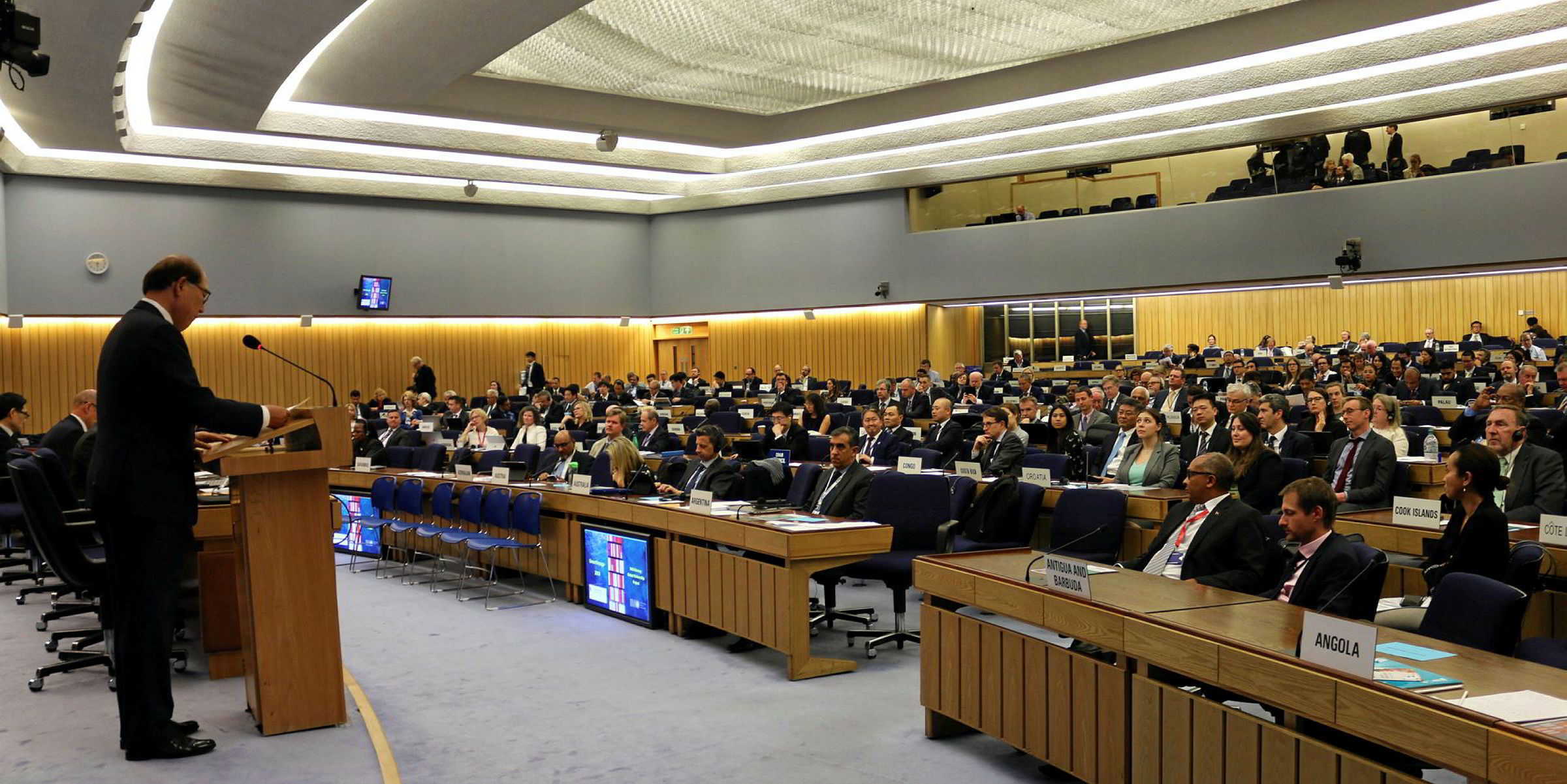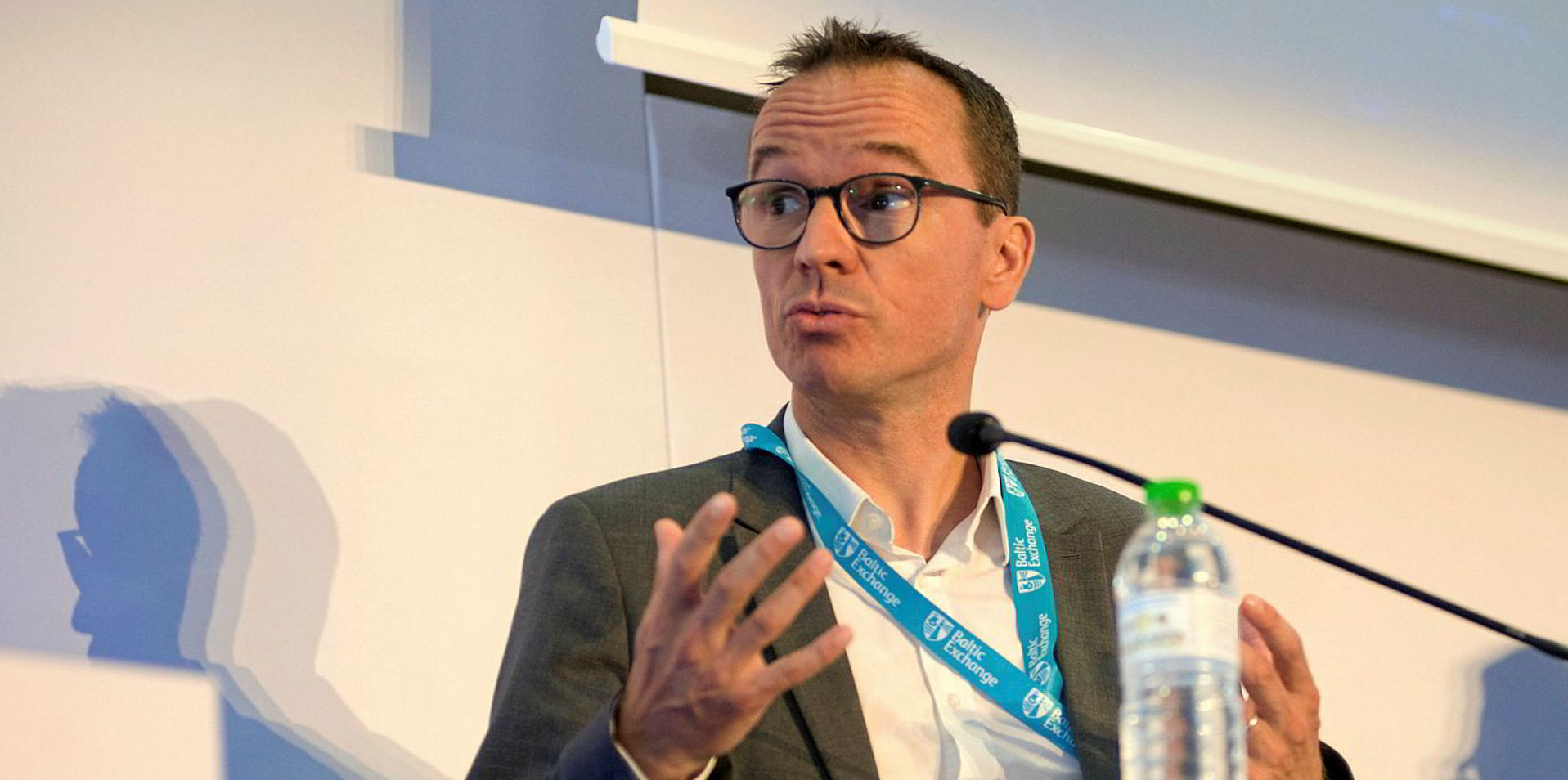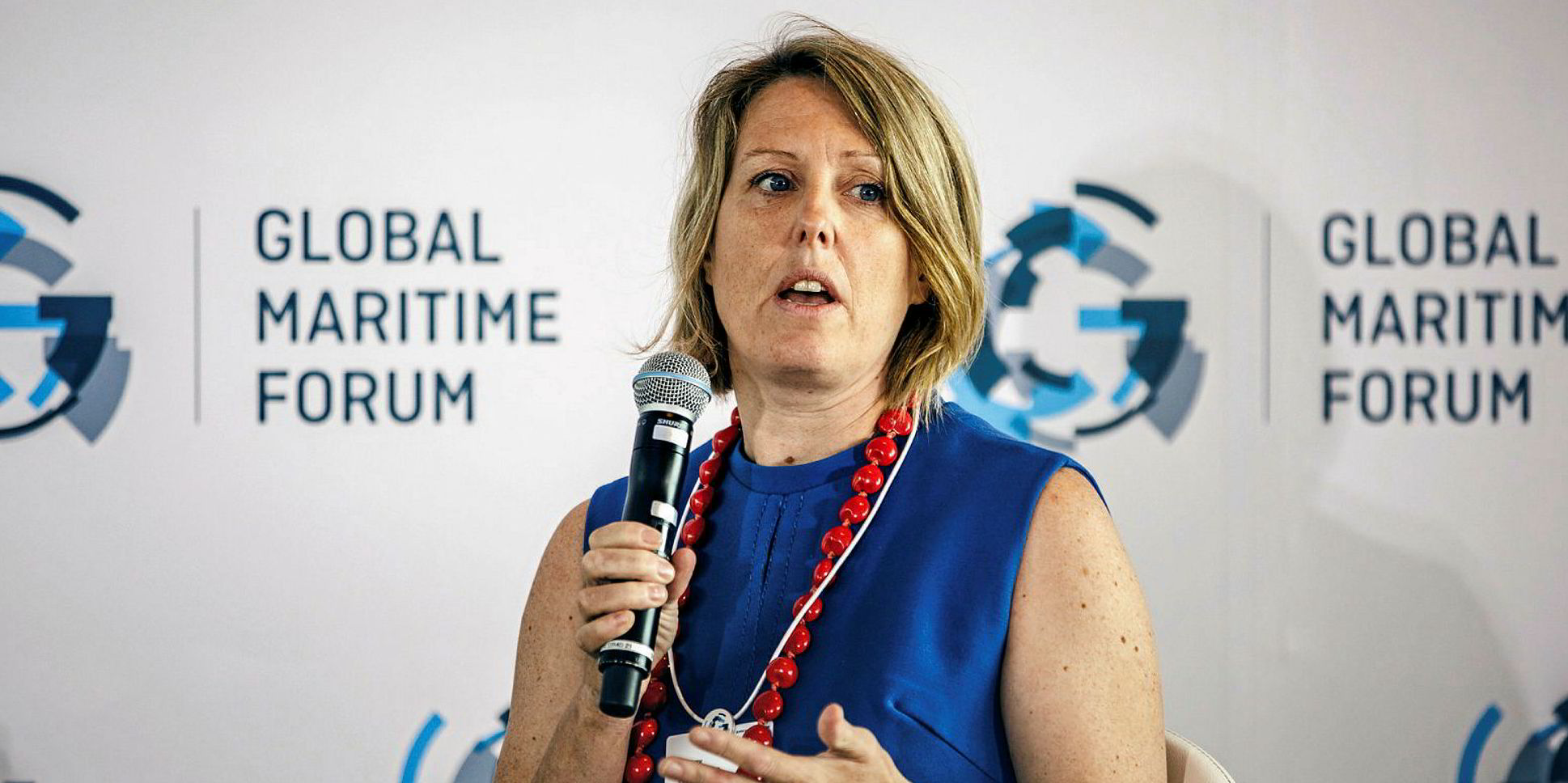One of the world’s biggest ship operators, Cargill, has called for rapid action to implement a clear legal framework around the decarbonisation of shipping.
Jan Dieleman, president of Cargill Ocean Transportation, today warned that without clarity the world could slide into a patchwork of conflicting national and regional rules which would slow and confuse the cleaning up of the industry.
Dieleman told a session of the Global Maritime Forum in Singapore that the industry needed the International Maritime Organization to act quickly to put in place clear aims and global rules.
“We can talk a lot about [clean fuel] technologies, but if you can’t get the legal framework worked out we have the risk of running in circles,” he said during a panel on the forum’s Getting to Zero Coalition.
Cargill, a US-based commodities giant, operates around 670 ships, of which about 90% are dry bulk carriers.
A price on carbon emissions – a ‘carbon tax’ – could work if it was part of a broader global programme.
“I think the real challenge is we need a legal framework, we need a level playing field. Not just around maybe a price on carbon, but also around the safety and environmental aspects of these technologies, because people need to make decisions and know where they are standing.”
50% target
The IMO has set an initial target of a 50% reduction in shipping’s carbon emissions by 2050 on the 2008 level, with the intention to set firm targets by 2023.
The industry’s emissions are estimated to be around 2.2% of the global total at present.
“If the IMO is not able to pull this off very, very quickly – and we all know it is going to be difficult – I think the risk is a lot of jurisdictions are going to do their own thing.
“I think that could throw us back, and all the of the money that [carbon tax] scheme could generate is not going to find its way back into maritime. That is one of the biggest challenges we face.

“We cannot underestimate the task, but it also makes it exciting.”
Rising nationalism and protectionist trade policies from several major countries has weakened the system of multi-lateral policy-making, warned Isabelle Durant.
As a result, business should not wait for IMO but instead be assertive and take the lead with its own collaborative approach, said Durant, who is the deputy secretary general of the United Nations Conference on Trade and Development (UNCTAD).
“The UN multi-lateral system is struggling to adopt new rules, but the multilateral system needs to stay as our compass,” she said.
“We don’t have to wait for a legal framework, we have to act to change the dynamic from the bottom and not wait.”
She added: “Maybe it is you, the private sector industry that is able to show how multilateralism is possible in order to push and pressure states to enact this legislation.”(Copyright)





